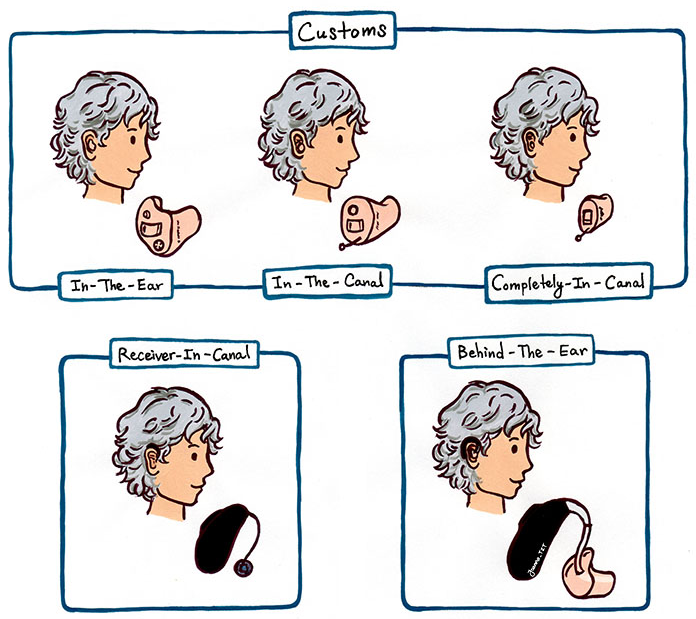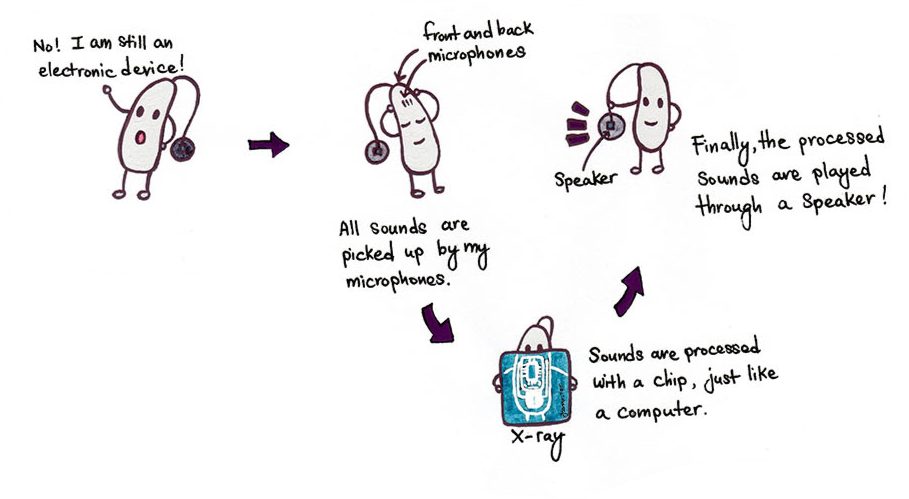Choosing and getting the right hearing aids might be a tough decision for some. This article will explain the process of getting hearing aids and how to choose the right ones for you. You are not alone in this journey and your healthcare providers will guide you throughout this process.
Before seeing an audiologist to try out hearing aids, a hearing test will be conducted and an ENT doctor will assess you to ensure that you are medically eligible for hearing aids. Next, our triage staff will provide you with a brief explanation on the price and styles of the different hearing aids, as well as funding options available. They will then help you to book an appointment to see an audiologist for a hearing aid evaluation session.
During the hearing aid evaluation session, the audiologist will provide detailed information on your hearing test results, how hearing aids work, its function and limitations of the different styles of hearing aids available, and how to manage them. You can then try on different brands of hearing aids before deciding on the most suitable option for you. The audiologist will also answer any questions you might have about hearing loss and hearing aids, as well as address any concerns or feedback about hearing aid devices.
In general, there are three main styles of hearing aids:
- custom hearing aids that sit inside the ear;
- receiver in the canal (RIC) hearing aids that sit behind the ear;
- behind the ear (BTE) hearing aids that are larger than RICs which sit behind the ear as well.
Each style has their pros and cons, some of which will be covered later in this article.

Some styles have rechargeable options. Rechargeable hearing aids offer an environmentally friendly alternative since less single-use battery waste is generated, and provides ease of management for those who find it inconvenient to handle small batteries. However, there is also merit to non-rechargeable hearing aids, such as having the ability to bring and change out the batteries on the go when needed. There is also no need to worry about not being able to charge the hearing aid should the charger break down. Hence there is no best option, but it depends on each person's preference and lifestyle.
To help decide on the style of hearing aids best suited for you, your audiologist will discuss with you several important points of consideration including (but not limited to):
- Past or recurring ear infections
- Type and severity of hearing loss
- Lifestyle, listening needs and daily listening environments
- Any vision and/or dexterity considerations.
- Ability to manage hearing aids or availability of a caretaker to help manage the hearing aids
- Budget
- Additional streaming capabilities or accessories for the hearing aids. (e.g. if you are comfortable with more advanced technology or prefer simpler options).
- The paediatric population
Before going into detail on the points listed above (click on link at the end of this article), let's clarify some common myths about hearing aids with RICKY the RIC hearing aid.
Common myths
Myth: Hearing aids are noisy.
Fact: Over the duration of your hearing loss, your brain gradually forgets how noisy our world can be. However, with consistent use of hearing aids at all waking hours, your brain will slowly learn to get used to hearing environmental sounds once again.
Myth: Hearing aids will restore my hearing.

Fact: As described by RICKY, hearing aids utilise electronic microphones and speakers to deliver sounds amplified according to your severity of hearing loss. Hence, whilst the hearing aid provides the amplification you need, it does not restore your hearing back to normal.
For more information of our services at the Department of Otolaryngology - Head & Neck Surgery, click here.
For more details and the full list of common myths about hearing aids, refer to our brochure here (PDF, 847 KB).
Written and illustrated by Tang Zhi Ting Joanna (Audiologist)





















